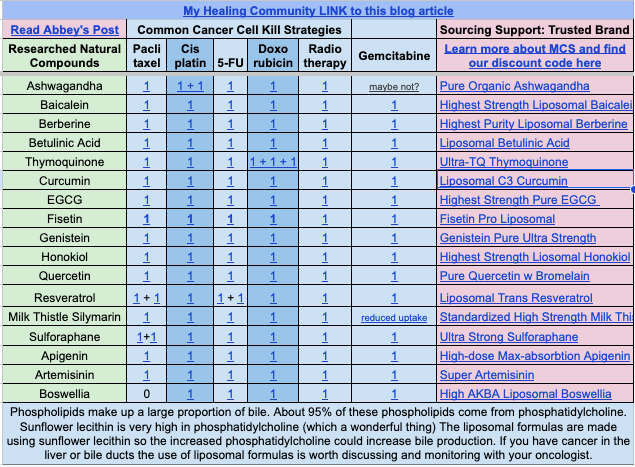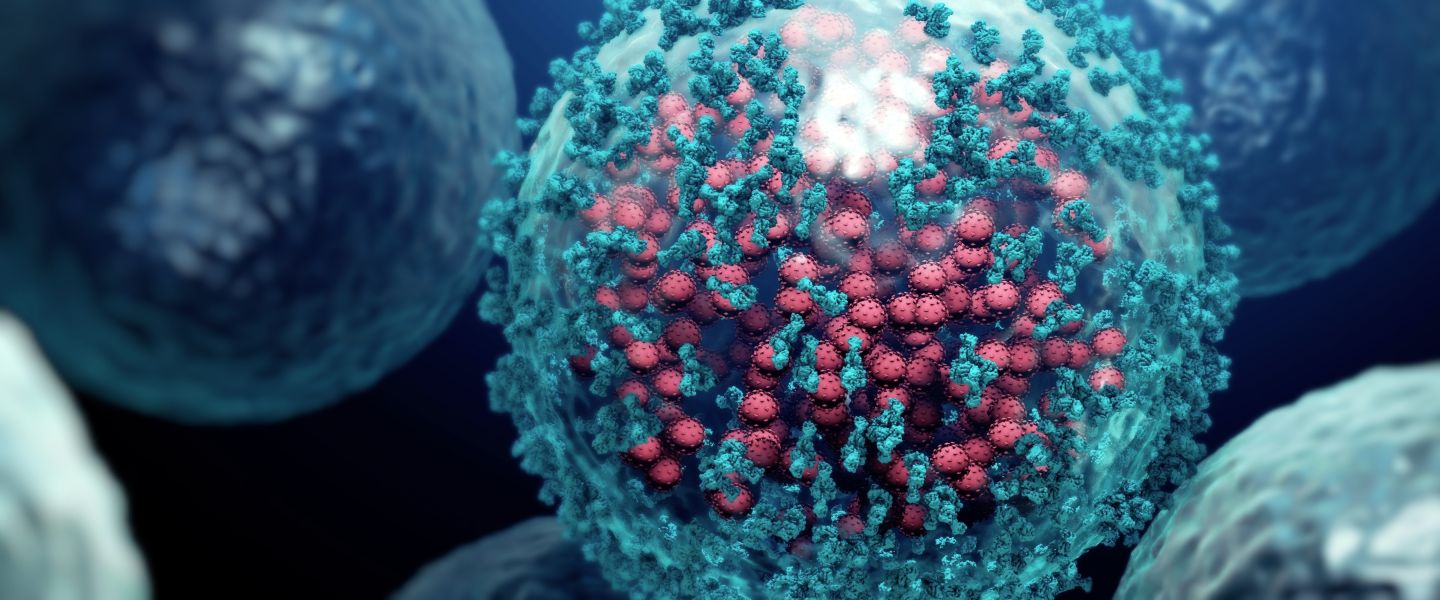SHARING / REPOSTING GUIDELINES: We're very happy to have posts/articles shared as direct links.
However, if you are replicating and re-posting information from this website or our posts, Abbey requests that you:
A) Only ever share articles in part (not in full). (eg. You can lift a paragraph as a way of introducing your readers to the topic) B) Be sure to always provide a direct link/URL back to the full original article here on the MyHealingCommunity.com website. Thanks in advance for your co-operation when sharing and re-posting any and all information that appears on this website.
Did you know you could use the "Search this website" for anything you are interested in - including the word "Apigenin" to find and read any page or post with your target word.
Could antioxidants actually enhance chemotherapy outcomes?
my own research table for natural compounds that support standard of care treatmentsArtemisinin is technically the only compound in my table that is NOT considered and antioxidant.
The number 1's are direct links to the research for enhancing each treatment with that particular compound.

Nowadays, we all have comprehensive data at our fingertips that we can turn to when someone strongly suggests that we should stop all the antioxidants during chemotherapy or radiation treatment. Instead of agreeing out of fear of upsetting the person who appears to be in the know, we really need to take responsibility and look at each supplement carefully and make the best decision for our survival at the time.
There is simply no longer a one size fits all when it comes to chemotherapy or when it comes to evaluating the use of compounds we call "antioxidants". For example, although EGCG from green tea has both antioxidant and pro-oxidant properties, its pro-oxidant activity has been postulated to be primarily responsible for its anti-cancer effects (ref).
Feel free to read and share this blog post that connects to my research summary table loaded with direct links to PubMed here (each number 1 symbol in the table is a link). https://myhealingcommunity.com/antioxidants-and-chemotherapy-research/
DISCLAIMER: Any and all information in this post was gathered from published research in cell lines or animals, or from typical clinical use. It may not be complete, may not have not been verified in humans, and is NOT meant or given as medical advice, but only as a guide to further exploration.
Continue Reading...
BLOG
Sulforaphane anti-cancer checklist

TNBC Chemotherapy Resistance Study Support Notes

Salvia miltiorrhiza (Danshen) Anti-Cancer Research






